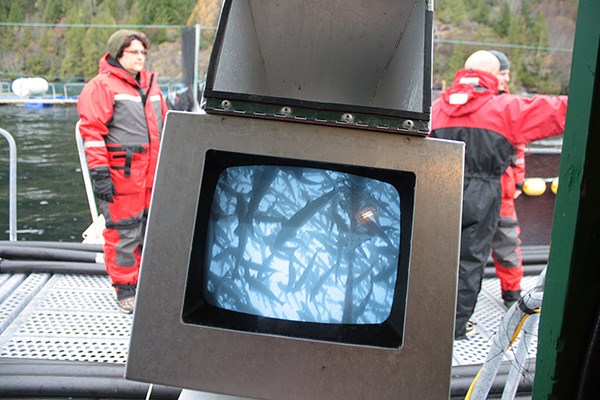A new study has identified a European variant of a virus present in farmed and wild salmon in British Columbia.
The study was published Jan. 7 in the peer-reviewed journal Virology. The Raincoast Research Society, which helped conduct the study, said that the presence of the infectious salmon anemia (ISA) virus in Atlantic farmed salmon puts wild salmon at risk.
Raincoast worked with biology and computer science researchers from the University of Prince Edward Island and a statistics researcher from Simon Fraser University.
The study includes salmon from waters along the West Coast, including this area.
“Some of those fish came from Squamish,” said Alexandra Morton, a biologist with the Raincoast Research Society.
She said they worked with a local guide in 2013 to look at fish that had made it to the Squamish River that were in the process of dying without having spawned.
“This is a common problem in these rivers,” she said.
For the study, they tested more than 1,100 wild and farmed tissue samples from all wild varieties of Pacific salmon, as well as Atlantic salmon, cutthroat trout and other fish. Samples of farmed salmon came from stores and markets.
The report shows that segments of the virus were found in a higher proportion of the farmed samples than of the wild fish, especially among Atlantic salmon.
The ISA virus has been associated with outbreaks in Atlantic salmon populations, as well as a destructive outbreak in Chile in 2007 that spread from Atlantic salmon eggs. The concern is that the disease can be spread to wild populations.
The problem, Morton said, is that wild salmon can be exposed to the run from the waters of narrow channels where fish farms are adjacent.
The most alarming finding, she said, was the evidence of the virus in the Cultus Lake sockeye, a population that has long been under threat in spite of mitigating measures such as fisheries closures and habitat restoration.
“There’s a run of fish that is highly studied,” she said. “They’ve tried everything to get those fish to come back.”
The research team also found evidence in the cutthroat trout at Cultus.
Morton said they are not 100 per cent certain that the virus is killing salmon populations, but there is a need for more inquiry into the issue, especially into the presence of ISA virus among farmed populations.
“This is very serious evidence that needs to be reviewed very thoroughly,” she said.
Opponents dismissed the report. Jeremy Dunn, a spokesperson for the B.C. Salmon Farmers Association, responded that thousands of tests by the Canadian Food Inspection Agency have found no evidence of the ISA virus in B.C., nor has the virus been found in Washington, Oregon and Alaska. He added that farm-raised salmon in the province have shown no signs of illness and he criticized the researchers, citing a past history of reporting false positive results, which raises ethical questions.
“We have great concerns about the methodology,” Dunn said in a statement via email. “None of the results reported in this paper have been confirmed by an outside laboratory.”
According to its website, the Canadian Food Inspection Agency has found no presence of ISAV in studies of farmed salmon on the West Coast, though the disease has been found among Atlantic salmon populations in Atlantic waters.
The most recent data on the CFIA website come from 2014.
Critics of the report also said that the report itself states that all attempts to find the isolated virus in the salmon were negative and considered “negative” in terms of the threshold for Canadian federal regulatory action.
Morton said that the study detected segments of the virus rather than the virus in isolation, which she said would require fish to be caught alive.
For farmed salmon, the researchers could only test fish from stores rather than ones freshly caught. Morton likens it to police having to rely on partial fingerprints when they do not have a whole print. The farms, she added, could shed more light on the issue if the researchers could test the fish straight from the farms.
“They could clear this up. They have the power,” she said.



